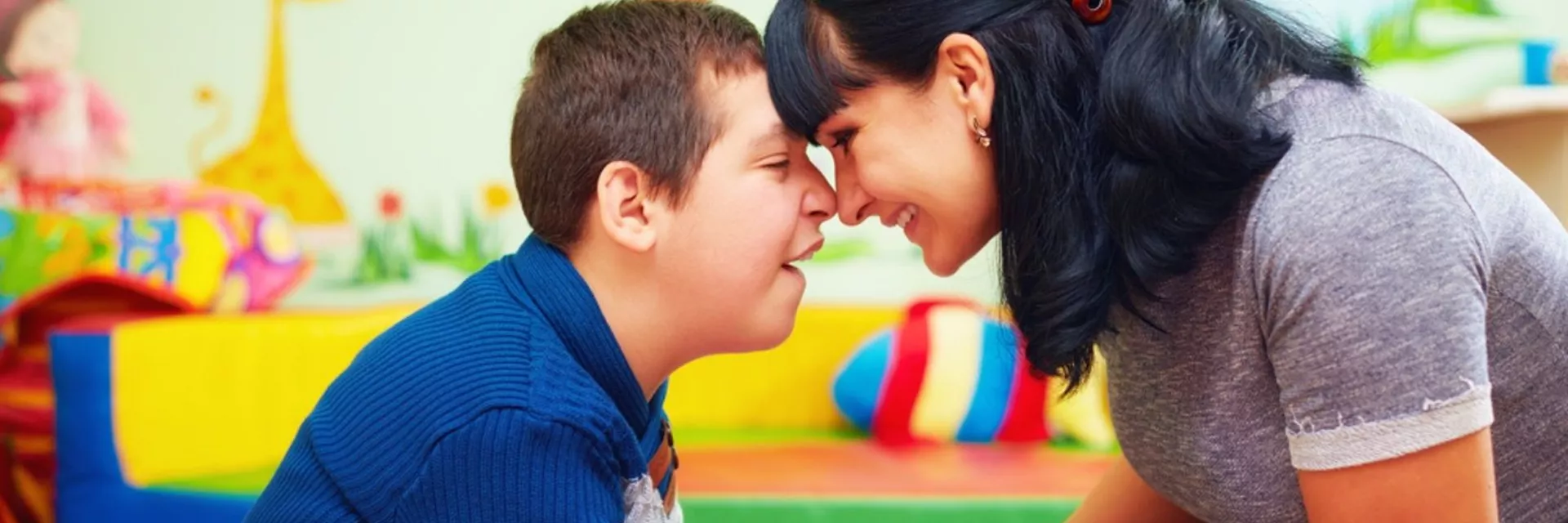
Fostering is an amazing experience.
As a foster parent, you have the unique opportunity to make a real difference and impact in a child’s life. As well as your own.
But that isn’t to say that becoming a foster parent doesn’t come with its challenges. And one potential challenge you might come across is fostering an autistic child, especially when you already have birth children at home.
Helping your children to feel comfortable, know what to expect, and understand that living with their foster sibling might not always be easy is a demanding task. Even for the most experienced of foster parents.
In this guide, we’ll show you how to make fostering an autistic child with birth children a success.
What is autism?
Autism Spectrum Disorder (ASD) is a lifelong developmental disability that affects how people communicate and interact with the world. They see and experience the world very differently, which impacts their character and personality traits.
Autism is a spectrum condition, meaning it affects people in a variety of different ways. If you’re providing a foster home for an autistic child then it’s important to understand the difficulties that many autistic children share. This will make it much easier to explain autism to your birth children and teach them how to be accepting of their foster sibling’s condition.
- Challenges with social communication: While some autistic people are non-verbal or have limited speech, others might have excellent language skills but struggle to pick up on things like sarcasm, tone of voice, or gestures.
- Challenges with social interaction: Some autistic people find it difficult to express emotion or recognise other people’s feelings or intentions. This can make them seem insensitive or isolated, making it difficult to form friendships and relationships.
- Sensitivity: It is common for autistic people to experience either over or under sensitivity to different stimuli such as light, sound, taste, smell, pain, colours, etc. Sensory overload is common and can cause issues such as anxiety, meltdowns or pain.
- Routines: Routine is an important part of living with autism, to make the world feel more predictable and less confusing or overwhelming.
- Repetitive behaviour: People living with autism may repeat movements or sounds to help calm themselves when they’re feeling anxious or overwhelmed.
- Interests and hobbies: It’s common for autistic people to have a highly focused or even intense interest in a particular hobby. This gives them a lot of pleasure and drive, but it can make them shut out other areas of their life.
- Meltdowns: Sometimes mistaken as a standard temper tantrum in an autistic child, a meltdown happens when everything becomes too much to take in. The person will feel overwhelmed and lose behavioural control.
- Shutdown: This is similar to a meltdown but more passive. The person will appear to switch off as they don’t know how to react.
These are only a few measures on the spectrum, so there are many more. It’s also important to remember that disability fostering and caring for an autistic child can bring so much joy too. While they will need extra attention and support, autistic children can be just like any young child – funny, playful and interesting!
How to create a loving foster home for an autistic child
If you already have birth children, then fostering an autistic child might come as a bit of a shock to them. Especially if your foster child has a more severe form of autism.
Whether you’re short or long-term fostering an autistic child, understanding their behaviour and how they cope with different situations will lead to a positive and valuable experience for everyone.
And there are a lot of positive steps you can take to make this a truly special and fulfilling experience for everyone in your home.
Be as prepared as possible
It’s important to get clear understanding of how the child expresses themselves and deals with new situations. This will make those first introductions much easier to deal with. It’s things like knowing what their triggers are, their coping mechanisms, what their interests are, and how they like to be spoken to or touched (some autistic children don’t like physical contact, so things like holding hands or hugging might be a trigger.)
The more you can identify the reason behind their behaviour, the more rewarding and smooth fostering an autistic child will be.
This goes hand in hand with being flexible. As a family, you need to adapt and possibly change your environment and routine (physically and psychologically) in order to support your foster child.
Be open with your birth children
Even if your children are used to living with foster siblings, living with a child on the autism spectrum can be a confusing and tricky scenario. Especially if they have never encountered it before.
Be open and honest with your kids. The more they know about autism spectrum disorder, the better. Explain to them that their foster sibling may not like cuddles or high-fives, but it doesn’t mean they don’t like them. Explain that they might be quiet at times, or all the time, but this doesn’t mean they don’t want to be involved and should be ignored. Teach them to be patient and kind and that their foster sibling may feel uncomfortable taking part in activities they usually enjoy (as joining the foster family could be overwhelming) but that doesn’t mean they shouldn’t include them in their play.
If your foster child has a keen interest in something, then encourage your child to learn about it or even join in. They might find they enjoy it too and form a beautiful bond.
This is a brilliant way to demonstrate empathy and patience and will help give your children these essential life lessons.
Pay attention to their environment
Children with ASD can experience problems processing everyday sensory information.
Some autistic children find it challenging to filter out background noise. Other times, too much visual stimulation can cause a sensory overload.
If this is the case then your foster home for your autistic child needs to cater to their triggers. This includes hobbies or games your birth children enjoy. If they like playing loud music, playing instruments, having friends over who make a lot of noise or watching visually stimulating shows, then talk to them about how this might have a negative effect on their foster sibling.
The last thing you want to do is stifle your birth children or make them feel strangers in their own home, so sit down together and have a chat about ways they can still enjoy their hobbies, but in a way that respects their foster sibling’s challenges.
Set routines
Children with autism find comfort and reassurance in constancy, consistency and uniformity.
This means life in your home might need to be more rigidly organised with routines set down (things like mealtimes, bedtime, school time, homework time, playtime, etc.) Adapting your family’s life to the complex need of your foster child might seem like a hard task, but by involving your birth children, they will feel like they are part of the solution. This is incredibly important as birth children within a foster family need their voices heard. Fostering is a family decision, so be sure that any routines you set are agreed as a family rather than dictated.
It may even be the case that the routines you set enable your birth children to have much needed alone time or one-on-one parent time. For example, if your autistic foster child prefers to paint, read or play with their toys alone, this could be the perfect opportunity to help your birth children with homework.
It’s not “bad” behaviour, it’s different behaviour
When an autistic child goes into meltdown from being overstimulated, overwhelmed, or having their routine changed, you have to understand that this isn’t ‘bad’ behaviour. It’s just different.
You need to make your child aware that this isn’t punishable behaviour. But, you also don’t want any young, impressionable birth children to start copying their behaviour. Instead, use your knowledge and understanding of your foster child to establish a routine, understand what triggered the child, and explore coping mechanisms. This is something you can do as a family, and can also teach birth children to be more patient and empathetic with their peers.
Get them involved in planning
Many children with autism don’t cope well with unpredictability and can be uncomfortable with spontaneity. Because they enjoy fixed routines, they tend to cope poorly with change or new plans.
If you are planning to go on a trip, outing, or holiday, then make sure you plan well in advance.
Give your foster child as much information as possible to ensure they’re prepared and comfortable with the plan. This can include times, dates, where you’ll be going, how long it’ll take to get there, where you’ll be eating, etc. And talk about it with them daily so they get used to it.
This can be something fun to involve your birth children in, as they can join in on making the plans. The more prepared and assured your foster child is, the better they should be able to handle it.
Fostering children with high needs calls for patience, love, and resilience
At Fostering People, we have a wealth of experience supporting our foster parents during and after placements with an autistic child. So you will never feel alone, overlooked or unheard.
If you’re just starting out on your fostering journey and want to know more about caring for a child with more complex needs, download our guide, Disability and Mental Health: A Foster Parent’s Guide to Complex Needs.
Or, get in touch and one of our friendly advisors will be more than happy to answer your questions. Whether you’re unsure if fostering is right for you, or you’re considering a transfer, we’re here to help.

